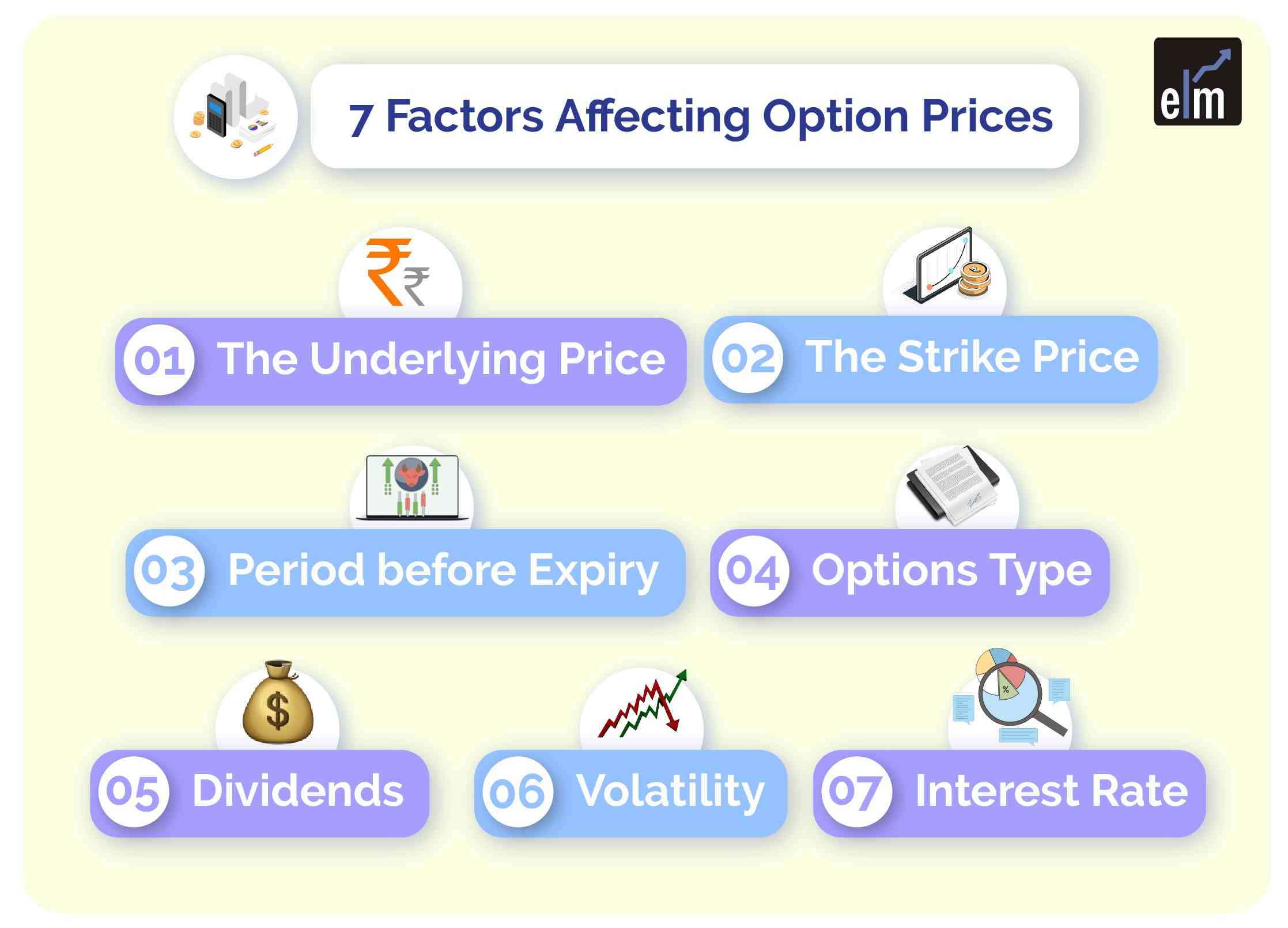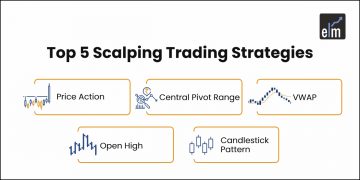Any trader will confess that knowing the concept of options pricing and determining its correct value determination is essential for effective trading.
When all factors that affect the price of an option are considered, the real price of the option may be determined.
Take, for example, petroleum. Consumer demand, crude oil pricing, seasonal variations, municipal and state taxes, and refinery productivity, among other factors, all influence final petroleum prices.
When you want to know or calculate the price of an option before you buy or sell it, you might use a mathematical method like the Black Scholes model. You have to think about the variables in the model, and you’ll get the right pricing.
To be a successful trader, you must first understand option pricing and value. How can you know how much something is worth (or could be worth) if you don’t understand the factors that influence its price?
So, in today’s blog, we will discuss 7 Factors Affecting Option Pricing:
7 Factors Affecting Options Pricing

1. The Underlying Price
The underlying price- Yes! For example, if a call option appeals to you and allows you to purchase stocks of X business at, say, Rs 390 a share, you would be willing to pay more for the call when the stock trades at Rs 390 rather than Rs 400.
The call option is significantly closer to an ITM of Rs 49 than it would have been if it had traded at Rs 40. Put options, on the other hand, work in the opposite direction.
2. The Strike Price
This is the price at which a call holder can buy stock and a put holder can sell it. Wouldn’t you pay more for the right to acquire shares at Rs 380 than for the right to buy the stock at Rs 410, as in the case above?
Of course, the ability to acquire stock at a reduced price any day of the week is always preferable! As a result, calls become more expensive as the strike price falls. Puts, on the other hand, become more valuable when the strike price rises.
3. Period before Expiry
The influence of time is simple to comprehend, but understanding the significance of the expiration date takes practice. Because good companies tend to rise over lengthy periods, time works in the stock trader’s favour.
However, time is the adversary of the option buyer since if days pass without a significant change in the underlying, the option’s value will drop.
Furthermore, as the expiration date approaches, the value of an option will decrease more rapidly.
On the other hand, this is good news for option sellers who try to profit from time decay, especially in the last month when it happens most quickly.
4. Options Type
The value of an option is determined by its kind. There are two sorts of options: Put and Call Options The distinction plainly depends on whose side of the market or trade you are on. This is perhaps the most essential variable that the common trader can understand.
5. Dividends
Cash dividends affect optionS prices through their effect on the underlying stock price. Because the stock price is expected to drop by the amount of the dividend on the ex-dividend date, high cash dividends imply lower call premiums and higher put premiums.
6. Volatility
The impact of volatility on the price of an option is the most difficult subject for newcomers to grasp.
It is based on a metric is known as statistical (or historical) volatility, or SV for short, which examines the stock’s past price fluctuations over a set period.
The variation between day-to-day stock prices is known as volatility. Swings in the price of a stock are also referred to as this. Compared to their non-volatile counterparts, more volatile equities are more frequently exposed to fluctuating strike price levels.
You can also join our course on Certification in Online Options Strategies
With large moves, the possibilities of making money increase, and the investor goes out of the Blue sphere. As a result, volatile stock options are significantly more expensive than less or non-volatile stock options. It’s important to note that even the tiniest changes in volatility predictions significantly impact option prices.
Volatility is frequently considered as an estimate, and utilising only an estimate, especially for future volatility, makes calculating the optimal option value nearly impossible.
Understanding the impact of volatility on our Trading Strategies can be a tough task. You can master the same at our online option trading course .
7. Interest Rate
Like most other financial assets, Options prices are influenced by current interest rates and are impacted by interest rate fluctuations.
Interest rate changes have an inverse effect on call and put option premiums: calls benefit from rising rates, while puts lose value. Conversely, when interest rates decline, the opposite is true.
Bottomline
All of these elements have a role in deciding the price of each option. However, the only two variables over which an investor has any influence are the time to expiration and the strike price (assuming that you’ve previously decided which investment you’ll trade the option on). As a result, investors should concentrate their efforts on determining the ideal strike and expiration for their purposes.
We hope you found this blog informative and use it to its maximum potential in the practical world. Also, show some love by sharing this blog with your family and friends and helping us in our mission of spreading financial literacy.
Happy Investing!
You can also visit web.stockedge.com, a unique platform that is 100% focused on research and analytics.







